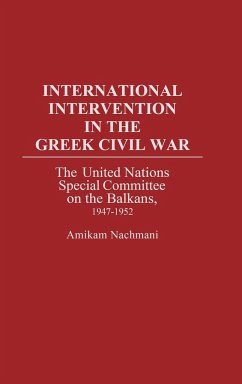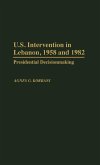Few people are knowledgeable about the history of the Greek Civil War. Often termed the hidden war, this conflict of the late 1940s is still highly controversial and a source of extreme emotion for those Greeks who remember it. This book details the events leading to the outbreak of the war and examines the unique means by which United Nation's intervention was able to restrain a conflict that threatened to engulf the Balkans and southeastern Europe. Nachmani demonstrates how the United Nations Special Committee on the Balkans (UNSCOB)--the first U.N. observation mission--stood out as a success story among the observation and peacekeeping missions of the post-World War II era. The U.N. vigilance in the Balkans is a saga that, up until now, has not been told. Using sources from the United Nations, England, the United States, Holland, and Greece, Amikam Nachmani offers a comprehensive re-creation of the uniquely successful role played by the U.N. in the Greek Civil War. The author contends that U.N. intervention in the civil war, conducted in the Balkans during the late 1940s by a few hundred observers, was a successful peacekeeping operation. This conclusion challenges the generally accepted view of the U.N. as a useless performer in post-World War II civil wars. Students and scholars of history, political science, and diplomacy will find this account of one of the most controversial conflicts in post-World War II history, fascinating reading.








